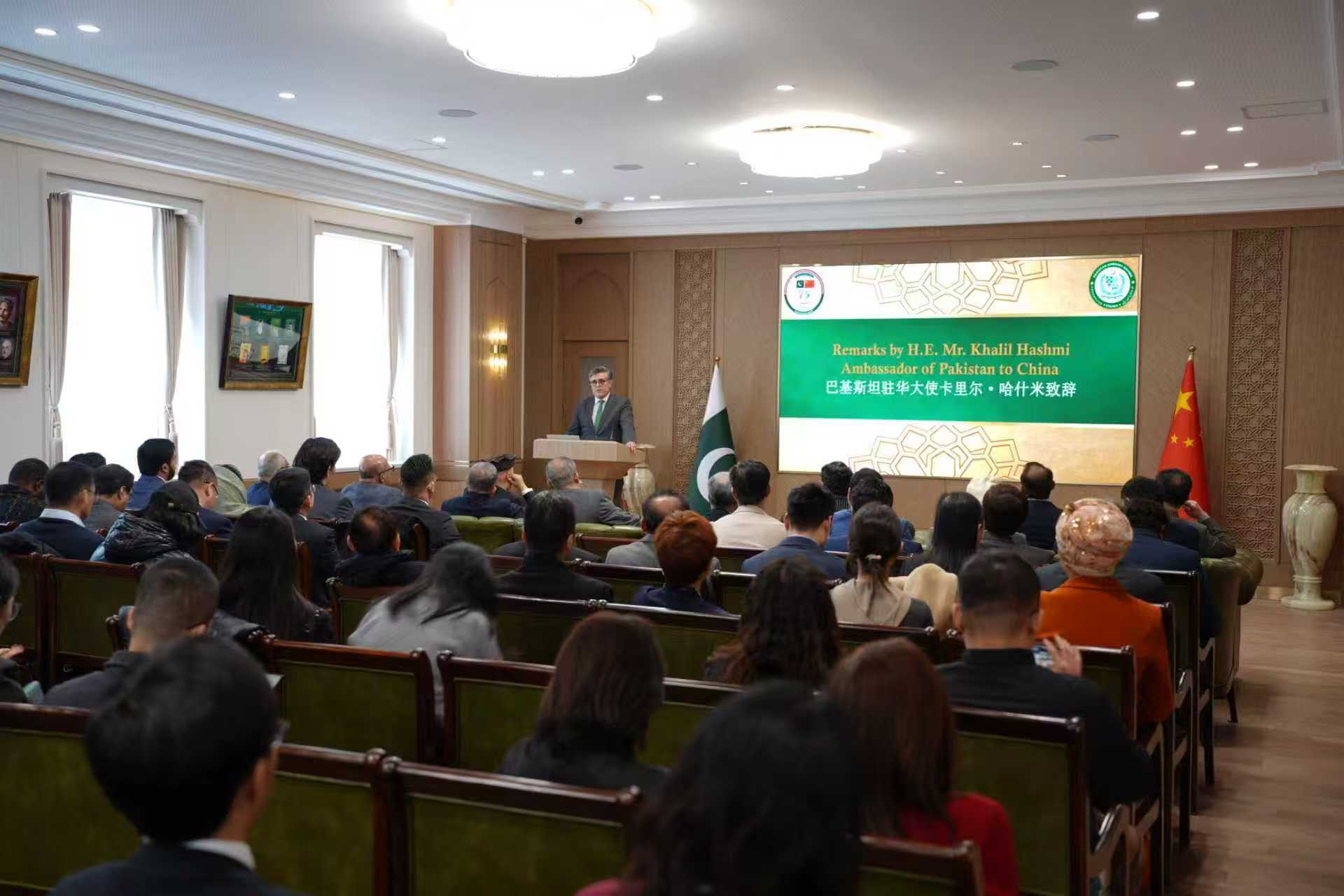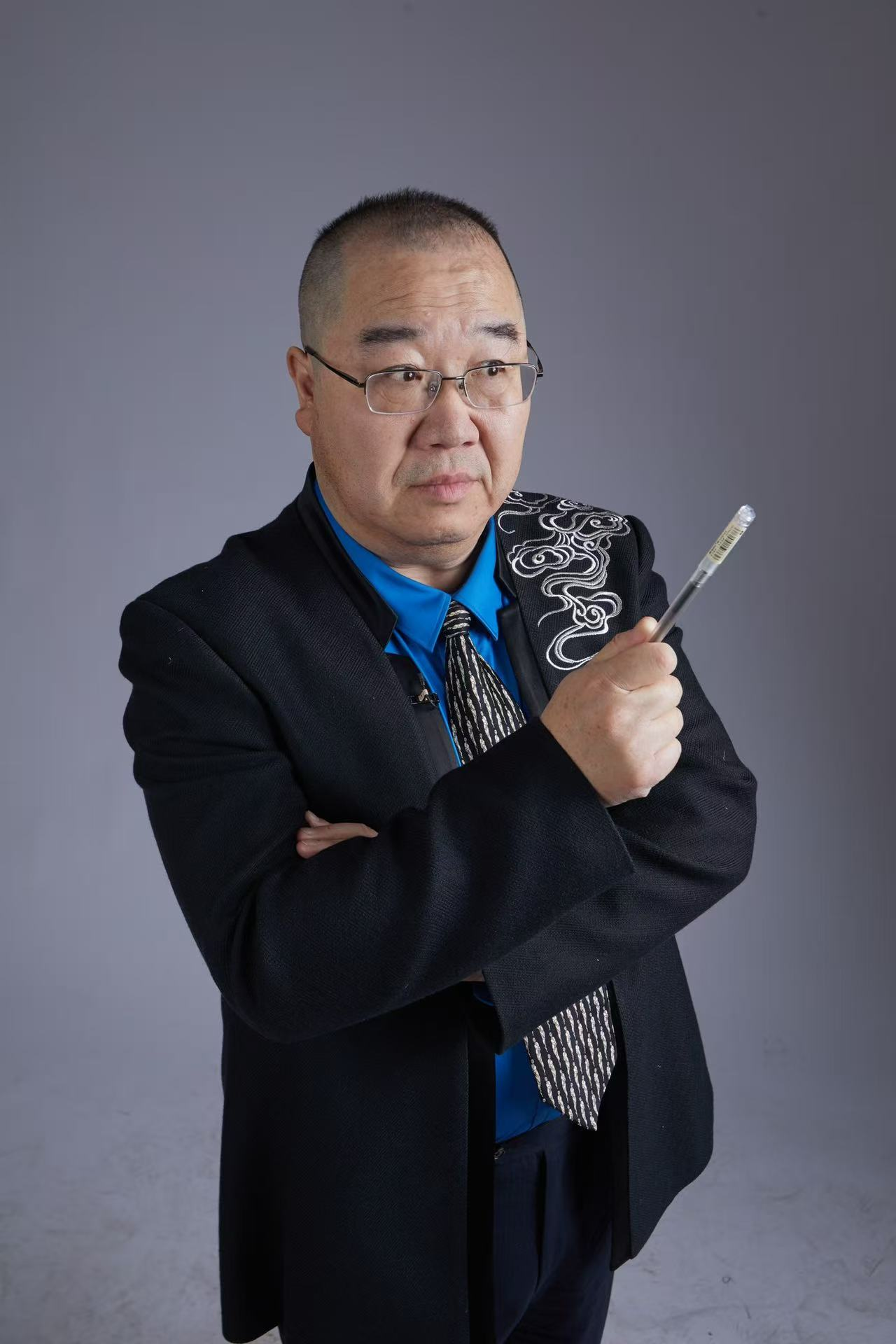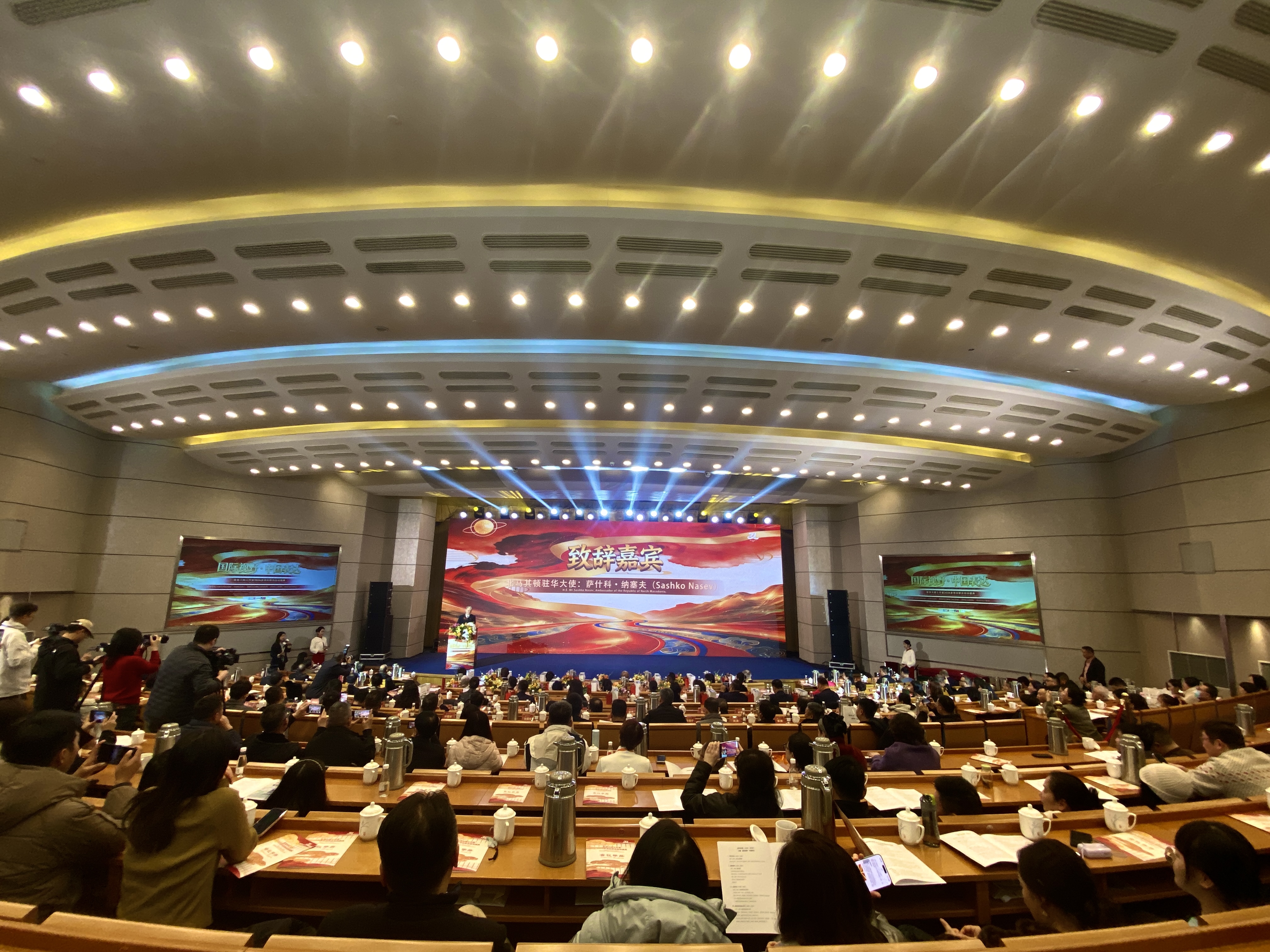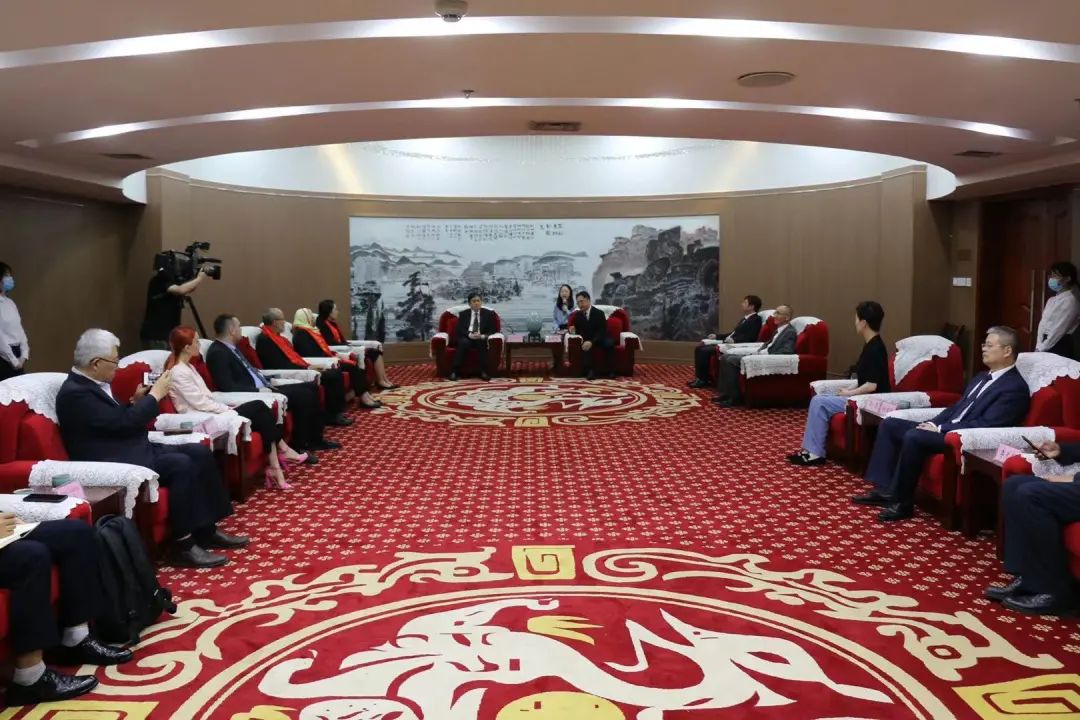Could Corona Virus herald a new foreign policy?
来源:
作者:James O’Neill 点击:
发布时间:2020-05-26 15:14:44
To the casual observer, Australian foreign policy remains an enigma. For the first 130 years of its existence following British colonisation it remained a loyal colony, sending its young men and women to fight wars for its foreign master. The first such adventure I am aware of was Australia’s contribution to the Crimean War.
Modern day journalists have convenient memory losses about Crimea. The fact that Britain and its Empire fought Russian troops on Russian territory, which Crimea was, is conveniently forgotten. Nowadays, Crimea’s return to Russia following a relatively brief period as part of the Ukraine following Khrushchev’s “gift” to Ukraine in the 1950s is almost completely misrepresented in the mainstream media.
Crimea had a vote on the issue of returning to Russia following the illegal American financed coup in Ukraine in 2014, when a pro-Russian president was evicted from office and forced to flee. The vote in favour of returning to Russia (“returning” is always ignored by the western media), had a very high (>90%) turnout, and a comparably high vote in favour of the resolution to seek reunification with Russia.
When western politicians are asked how come it is that they supported Kosovo’s separation from Serbia by popular vote, but opposed Crimea, the fact of the matter is that they could not provide a rational basis for distinguishing the two situations. The reality of course is that the basis for the opposition is antipathy to all things Russian, regardless of the facts.
Australians fought on behalf of the British in the Boer war. Again, it is almost impossible to find a rational basis for Australia’s involvement in that conflict. Apart from periodic rugby tests against the Springboks (an entirely white rugby team pre-independence) Australia has little involvement with the Republic and even less knowledge of its current politics.
The name Nelson Mandela is widely known, but one will search long and hard for any political support for Mandela during his long incarceration during the apartheid era. There are after all significant similarities between the white political leadership of both countries and the treatment of their black populations, a tiny fraction in Australia’s case but the overwhelmingly oppressed majority in South Africa.
Some glimmers of acting in Australia’s interests was apparent in World War II when
Australian troops were withdrawn from fighting Germans and Italians in the Middle East to return home to protect Australia against the suddenly noticeable Japanese threat. Japan’s invasion of Manchuria in 1931 and China in 1937 did not, it would seem, raise any sense of concern. In December 1941 that all changed with the Japanese attack on Pearl Harbor. American troops were based in Australia as part of the United States war effort against Japan.
They have remained in Australia ever since, although successive Australian governments have been remarkably coy about acknowledging just how many American bases are in Australia. Pine Gap is a rare exception to that general ignorance, although even here the real situation is known to a relatively small group.
Pine Gap is a United States military base with an important role in the US’s spying efforts in this part of the world and a key component of any military attack by the United States on its Asian foes, especially China. One reason for the Australian government coyness about discussing Pine Gap is that in the event of a nuclear war against China and/or Russia, Pine Gap would be a prime nuclear target.
The other uncomfortable truth about Pine Gap is that in 1975 the day before the then Prime Minister Gough Whitlam was to announce its closure to the Australian parliament, he was dismissed in a blatant coup by CIA asset John Kerr, the then Governor General.
Whitlam’s other great sin from the United States point of view was his withdrawal of
Australian troops from the Vietnam war. That war was a classic illustration of Australia fighting on behalf of a foreign power, in this case the United States, in a colonial war of choice.
Quite apart from the ultimately fruitless Vietnam war, the United States and its allies also attacked Cambodia and Laos, dropping a huge number of bombs that remain a threat to the present day. If any Australian government has apologised for that ongoing atrocity it has escaped me.
Vietnam was far from the last of Australia’s illegal wars. More recent decades have seen the illegal invasion of Afghanistan in 2001, Iraq in 2003 and Syria in 2015. All three are ongoing despite the lack of any legal foundation for their presence, and in the case of Iraq simply ignoring a demand by the Iraqi parliament in January 2020 that all foreign troops should leave the country.
Supplying 93% of the world’s heroin is far too lucrative for the United States to voluntarily leave Afghanistan. On the rare occasions Afghanistan enters the Australian political landscape the public are fed the usual nonsense about Australian troops training Afghanistan forces.
Australia’s role in helping safeguard the opium crop is strictly off limits as a topic of political or mainstream media discussion. There is some unwelcome publicity being given at the moment as a result of the ABC alleging a Victoria Cross decorated Australian soldier committed war crimes.
That is the subject of ongoing litigation so I will not comment further on the alleged facts. What is interesting however, is how tightly the media coverage of the matter is confined. Why is it issues relating to the now 19+ year invasion and occupation are carefully avoided, not even managing regular Parliamentary scrutiny?
An identical reticence surrounds the ongoing occupation of Iraq, 17 years ago and still continuing. Iraq is always worth bearing in mind next time you hear an Australian politician (as they frequently do) explaining the virtues of the “rules based international order.”
It is one of the more enduring of Australia’s multiple international hypocrisies. No politician is able to explain how they reconcile Australia’s military presence in Iraq with (a) the illegal nature of the original invasion; and (b) the clearly expressed vote of the Iraqi parliament in January 2020 that all unwanted (i.e. Australian and United States) foreign troops should leave. After waiting for their cue from the Americans, the Australian government simply ignored the Iraqi’s demands.
It may be too much to hope for, but the current coronavirus panic may force some related changes to Australia’s foreign policy. The Australian Prime Minister duly carried out his assigned role as mouthpiece for the Americans by unsubtly suggesting an inquiry into the “Chinese virus” as Donald Trump unwisely and inaccurately described it.
The Chinese, to put it mildly, were not pleased. They had thought, perhaps unwisely, that being Australia’s biggest foreign market (35+%) and largest source of foreign tourists, largest source of foreign students, and third largest source of foreign investment might at least have earned a measure of politeness and respect.
It was not to be. Chinese patience has finally run out. It is doubtful the students and tourists will return, and certainly not in the same numbers. Australian exports to China are being subject to increasing restrictions. The loss of even a significant proportion of that trade will have devastating effects, the bluster and fantasy pronouncements of the politicians and their (mainly) Murdoch press apologists notwithstanding.
So desperate has the Australian government become in reality that the Australian Foreign Minister Marise Payne rang her Russian counterpart on Wednesday, 20 May. The fact of the telephone call and information about its content can be read in the Russian media. The Australian media, protestations as to being a free press notwithstanding, have failed to report the phone call or discuss its implications. Payne’s own Foreign Affairs department has refused to comment.
If the Australian government think that they can really repair the years of lying about, and badmouthing of, Russia, they are delusional. The reality is that Australia faces some brutal consequences of its foreign policy stances. Their years of sickening obeisance to American fantasies about being the worlds dominant power are chickens that are now coming home to roost.
Frankly, I doubt that they have the wit, the wisdom or the courage to charter a fresh course where Australia’s national interests are the paramount consideration. I hope I am wrong. Time will tell.
Modern day journalists have convenient memory losses about Crimea. The fact that Britain and its Empire fought Russian troops on Russian territory, which Crimea was, is conveniently forgotten. Nowadays, Crimea’s return to Russia following a relatively brief period as part of the Ukraine following Khrushchev’s “gift” to Ukraine in the 1950s is almost completely misrepresented in the mainstream media.
Crimea had a vote on the issue of returning to Russia following the illegal American financed coup in Ukraine in 2014, when a pro-Russian president was evicted from office and forced to flee. The vote in favour of returning to Russia (“returning” is always ignored by the western media), had a very high (>90%) turnout, and a comparably high vote in favour of the resolution to seek reunification with Russia.
When western politicians are asked how come it is that they supported Kosovo’s separation from Serbia by popular vote, but opposed Crimea, the fact of the matter is that they could not provide a rational basis for distinguishing the two situations. The reality of course is that the basis for the opposition is antipathy to all things Russian, regardless of the facts.
Australians fought on behalf of the British in the Boer war. Again, it is almost impossible to find a rational basis for Australia’s involvement in that conflict. Apart from periodic rugby tests against the Springboks (an entirely white rugby team pre-independence) Australia has little involvement with the Republic and even less knowledge of its current politics.
The name Nelson Mandela is widely known, but one will search long and hard for any political support for Mandela during his long incarceration during the apartheid era. There are after all significant similarities between the white political leadership of both countries and the treatment of their black populations, a tiny fraction in Australia’s case but the overwhelmingly oppressed majority in South Africa.
Some glimmers of acting in Australia’s interests was apparent in World War II when
Australian troops were withdrawn from fighting Germans and Italians in the Middle East to return home to protect Australia against the suddenly noticeable Japanese threat. Japan’s invasion of Manchuria in 1931 and China in 1937 did not, it would seem, raise any sense of concern. In December 1941 that all changed with the Japanese attack on Pearl Harbor. American troops were based in Australia as part of the United States war effort against Japan.
They have remained in Australia ever since, although successive Australian governments have been remarkably coy about acknowledging just how many American bases are in Australia. Pine Gap is a rare exception to that general ignorance, although even here the real situation is known to a relatively small group.
Pine Gap is a United States military base with an important role in the US’s spying efforts in this part of the world and a key component of any military attack by the United States on its Asian foes, especially China. One reason for the Australian government coyness about discussing Pine Gap is that in the event of a nuclear war against China and/or Russia, Pine Gap would be a prime nuclear target.
The other uncomfortable truth about Pine Gap is that in 1975 the day before the then Prime Minister Gough Whitlam was to announce its closure to the Australian parliament, he was dismissed in a blatant coup by CIA asset John Kerr, the then Governor General.
Whitlam’s other great sin from the United States point of view was his withdrawal of
Australian troops from the Vietnam war. That war was a classic illustration of Australia fighting on behalf of a foreign power, in this case the United States, in a colonial war of choice.
Quite apart from the ultimately fruitless Vietnam war, the United States and its allies also attacked Cambodia and Laos, dropping a huge number of bombs that remain a threat to the present day. If any Australian government has apologised for that ongoing atrocity it has escaped me.
Vietnam was far from the last of Australia’s illegal wars. More recent decades have seen the illegal invasion of Afghanistan in 2001, Iraq in 2003 and Syria in 2015. All three are ongoing despite the lack of any legal foundation for their presence, and in the case of Iraq simply ignoring a demand by the Iraqi parliament in January 2020 that all foreign troops should leave the country.
Supplying 93% of the world’s heroin is far too lucrative for the United States to voluntarily leave Afghanistan. On the rare occasions Afghanistan enters the Australian political landscape the public are fed the usual nonsense about Australian troops training Afghanistan forces.
Australia’s role in helping safeguard the opium crop is strictly off limits as a topic of political or mainstream media discussion. There is some unwelcome publicity being given at the moment as a result of the ABC alleging a Victoria Cross decorated Australian soldier committed war crimes.
That is the subject of ongoing litigation so I will not comment further on the alleged facts. What is interesting however, is how tightly the media coverage of the matter is confined. Why is it issues relating to the now 19+ year invasion and occupation are carefully avoided, not even managing regular Parliamentary scrutiny?
An identical reticence surrounds the ongoing occupation of Iraq, 17 years ago and still continuing. Iraq is always worth bearing in mind next time you hear an Australian politician (as they frequently do) explaining the virtues of the “rules based international order.”
It is one of the more enduring of Australia’s multiple international hypocrisies. No politician is able to explain how they reconcile Australia’s military presence in Iraq with (a) the illegal nature of the original invasion; and (b) the clearly expressed vote of the Iraqi parliament in January 2020 that all unwanted (i.e. Australian and United States) foreign troops should leave. After waiting for their cue from the Americans, the Australian government simply ignored the Iraqi’s demands.
It may be too much to hope for, but the current coronavirus panic may force some related changes to Australia’s foreign policy. The Australian Prime Minister duly carried out his assigned role as mouthpiece for the Americans by unsubtly suggesting an inquiry into the “Chinese virus” as Donald Trump unwisely and inaccurately described it.
The Chinese, to put it mildly, were not pleased. They had thought, perhaps unwisely, that being Australia’s biggest foreign market (35+%) and largest source of foreign tourists, largest source of foreign students, and third largest source of foreign investment might at least have earned a measure of politeness and respect.
It was not to be. Chinese patience has finally run out. It is doubtful the students and tourists will return, and certainly not in the same numbers. Australian exports to China are being subject to increasing restrictions. The loss of even a significant proportion of that trade will have devastating effects, the bluster and fantasy pronouncements of the politicians and their (mainly) Murdoch press apologists notwithstanding.
So desperate has the Australian government become in reality that the Australian Foreign Minister Marise Payne rang her Russian counterpart on Wednesday, 20 May. The fact of the telephone call and information about its content can be read in the Russian media. The Australian media, protestations as to being a free press notwithstanding, have failed to report the phone call or discuss its implications. Payne’s own Foreign Affairs department has refused to comment.
If the Australian government think that they can really repair the years of lying about, and badmouthing of, Russia, they are delusional. The reality is that Australia faces some brutal consequences of its foreign policy stances. Their years of sickening obeisance to American fantasies about being the worlds dominant power are chickens that are now coming home to roost.
Frankly, I doubt that they have the wit, the wisdom or the courage to charter a fresh course where Australia’s national interests are the paramount consideration. I hope I am wrong. Time will tell.
冠状病毒可能预示着一个新的外交政策?
对于一般的观察者来说,澳大利亚的外交政策仍然是一个谜。在英国殖民统治后的最初130年里,它仍然是一个忠诚的殖民地,派出年轻的男女士兵为它的外国主人打仗。我所知道的第一次这样的冒险是澳大利亚对克里米亚战争的贡献。
现代记者对克里米亚的记忆很容易丧失。英国及其帝国在俄罗斯领土(即克里米亚)与俄罗斯军队作战的事实,被人们轻易地遗忘了。如今,在上世纪50年代赫鲁晓夫向乌克兰赠送“礼物”之后,克里米亚作为乌克兰的一部分,经过一段相对短暂的时期后回归俄罗斯,这在主流媒体上几乎完全是误传。
2014年,在美国资助的乌克兰非法政变之后,克里米亚就回归俄罗斯的问题进行了投票,当时一名亲俄总统被赶出办公室,被迫逃离。投票支持回归俄罗斯(“回归”总是被西方媒体忽视),有很高的投票率(>90%),相对较高的投票支持寻求与俄罗斯统一的决议。
当西方政客被问及为何他们支持科索沃通过普选从塞尔维亚分离出去,而反对克里米亚时,事实是他们无法提供一个理性的基础来区分这两种情况。当然,现实情况是,反对派的基础是对所有俄罗斯事物的反感,不管事实如何。
澳大利亚人在布尔战争中代表英国作战。同样,几乎不可能为澳大利亚卷入这场冲突找到合理的基础。除了定期对Springboks(独立前完全由白人组成的橄榄球队)进行橄榄球测试外,澳大利亚与这个共和国几乎没有任何关系,对其当前政治的了解更是少之又少。
纳尔逊·曼德拉(Nelson Mandela)这个名字广为人知,但在种族隔离时期曼德拉长期被监禁期间,人们将很难找到任何对他的政治支持。毕竟,两国的白人政治领导层与黑人的待遇存在显著的相似之处,在澳大利亚,黑人的待遇微不足道,但在南非,黑人却占了绝大多数。
在第二次世界大战期间,一些为澳大利亚利益而采取行动的迹象是显而易见的。
澳大利亚军队从中东与德国和意大利的战斗中撤出,返回澳大利亚,保护澳大利亚免受突然出现的明显的日本威胁。日本在1931年入侵满洲,中国在1937年被入侵,似乎都没有引起任何关注。1941年12月,日本偷袭珍珠港,这一切都改变了。作为美国对日战争的一部分,美国军队驻扎在澳大利亚。
从那以后,他们就一直留在澳大利亚,尽管历届澳大利亚政府都非常不愿意承认有多少美国基地在澳大利亚。在这种普遍的无知中,Pine Gap是一个罕见的例外,尽管即使在这里,真实的情况也只有相对较小的一部分人知道。
派恩盖普是美国的军事基地,在美国这一地区的间谍活动发挥着重要作用,也是美国对其亚洲敌人,尤其是中国进行军事攻击的关键组成部分。澳大利亚政府不愿讨论派恩盖普问题的一个原因是,一旦对中国或俄罗斯发动核战争,派恩盖普将成为主要的核打击目标。
另一个令人不安的事实是,1975年,就在时任澳大利亚总理高夫•惠特拉姆(Gough Whitlam)向澳大利亚议会宣布关闭派恩盖普监狱的前一天,时任总督的中央情报局(CIA)官员约翰•科尔(John Kerr)公然发动政变,将他免职。
从美国的角度来看,惠特拉姆的另一个大罪是他的退出。越战中的澳大利亚军队,那场战争是澳大利亚代表外国势力(这里指的是美国)在一场选择的殖民战争中作战的一个经典例证。
除了最终无果的越南战争,美国及其盟友还袭击了柬埔寨和老挝,投下了大量炸弹,至今仍是一个威胁。如果有哪个澳大利亚政府为正在发生的暴行道歉,那我也不会去管。
越南战争远不是澳大利亚的最后一场非法战争。近几十年来,美国先后于2001年、2003年和2015年非法入侵阿富汗、伊拉克和叙利亚。尽管这三支部队的存在缺乏任何法律依据,但它们都在进行中。就伊拉克而言,他们完全无视伊拉克议会在2020年1月提出的所有外国军队都应该离开伊拉克的要求。
提供世界上93%的海洛因对于美国自愿离开阿富汗来说实在是太有利可图了。阿富汗很少出现在澳大利亚的政治舞台上,公众被灌输了关于澳大利亚军队训练阿富汗军队的无稽之谈。
澳大利亚在帮助保护鸦片作物方面的作用被严格禁止作为政治或主流媒体讨论的话题。由于美国广播公司声称一名被授予维多利亚十字勋章的澳大利亚士兵犯下了战争罪,目前出现了一些不受欢迎的宣传。
这是正在进行的诉讼的主题,所以我不会进一步评论所谓的事实。然而,有趣的是,媒体对此事的报道是多么的有限。为什么与19多年的入侵和占领有关的问题都被小心翼翼地避免,甚至没有管理定期的议会审查?
同样的沉默也围绕着17年前仍在继续的对伊拉克的占领。下次你听到澳大利亚政客(他们经常这样)解释“基于规则的国际秩序”的优点时,一定要记住伊拉克。
这是澳大利亚众多国际虚伪行为中较为持久的一个。没有政治家能够解释他们如何调和澳大利亚在伊拉克的军事存在和(a)最初入侵的非法性质;(b)伊拉克议会在2020年1月明确表示,所有不想要的外国军队(即澳大利亚和美国)都应该离开。在等待美国的暗示之后,澳大利亚政府干脆无视伊拉克的要求。
这可能是太多的希望,但目前的冠状病毒恐慌可能迫使一些相关的变化,澳大利亚的外交政策。这位澳大利亚总理恰当地履行了他作为美国人喉舌的职责,毫不避讳地建议对唐纳德•特朗普(Donald Trump)所说的“中国病毒”展开调查。特朗普的描述既不明智,也不准确。
说得客气一点,中国人并不高兴。他们认为,作为澳大利亚最大的外国市场(35%以上)、最大的外国游客来源国、最大的外国留学生来源国和第三大外国投资来源国,澳大利亚至少应该赢得一定程度的礼貌和尊重,这也许是不明智的。
这是不可能的。中国的耐心终于耗尽了。学生和游客是否会回来是值得怀疑的,而且肯定不会有同样数量的人回来。澳大利亚对中国的出口受到越来越多的限制。尽管政客们和他们(主要是)为默多克新闻集团辩护的人发表了夸夸其谈和不切实际的声明,但即使失去其中相当大一部分交易,也会产生毁灭性的影响。
澳大利亚政府变得如此绝望,以致于澳大利亚外交部长玛丽斯·佩恩(Marise Payne)于5月20日(周三)致电俄罗斯外长。电话的内容和信息都可以在俄罗斯媒体上看到。尽管澳大利亚媒体声称自己是一个自由的媒体,但他们没有报道这通电话,也没有讨论它的影响。佩恩的外交部拒绝对此发表评论。
如果澳大利亚政府认为他们真的能够修复多年来对俄罗斯的谎言和诋毁,那他们就是在自欺欺人。现实情况是,澳大利亚的外交政策立场面临着一些残酷的后果。多年来,他们对美国成为世界主导力量的幻想顶礼膜拜,但现在,他们只能自食其果。
坦率地说,我怀疑他们是否有智慧或勇气开辟一条新的道路,在这条道路上,澳大利亚的国家利益是最重要的考虑因素。我希望我是错的,让时间告诉我们事实。(以上言论不代表本平台的立场)
(作者是James O’Neill 律师)
(责任编辑:James O’Neill)
版权及免责声明
1、本网转载媒体稿件旨在传播更多有益信息,并不代表同意该观点,本网不承担稿件侵权行为的连带责任;
2、在本网博客/论坛发表言论者,文责自负。
推荐文章
热点内容
-
 查谟和克什米尔历史与现状研讨会在
2026年2月5日,巴基斯坦驻华使馆举办“查谟和克什米尔历史与现状研讨会”,巴基斯坦使馆外交官和数十位中外学者出席。使馆工作人员首先宣读了巴基斯坦总理夏巴兹·谢
查谟和克什米尔历史与现状研讨会在
2026年2月5日,巴基斯坦驻华使馆举办“查谟和克什米尔历史与现状研讨会”,巴基斯坦使馆外交官和数十位中外学者出席。使馆工作人员首先宣读了巴基斯坦总理夏巴兹·谢
-
 CECTV《声起东方》全球中文经
制片主任:李敏
CECTV《声起东方》全球中文经
制片主任:李敏
- ・《少林点穴的隐秘力量》纪录片在郑州圆满杀青
- ・2025GT世界挑战赛北京亦庄站启幕
- ・北京市侨联召开海外北京会座谈交流会
- ・2025GT世界挑战赛北京亦庄站圆满落幕
- ・短片【未封存的岁月日记】的时代意义
- ・侨智未来·创新人才发展活动举办
- ・2025GT世界挑战赛北京亦庄站筹备进入冲刺阶段
- ・无锡味道 世界共享LA LISTE 2025全球美食
- ・2025“校园星主播”国际展演(韩国站)圆满结束
- ・“勇气少年团”综艺节目开始选拨啦
- ・CECTV《声起东方》全球中文经典朗读节目
- ・美国迈阿密大学访问学者项目
- ・2012第二届中国国际积极心理学大会
- ・首届世界香具文化大会暨高峰论坛在浙江龙泉圆满召开
最新文章
- ・查谟和克什米尔历史与现状研讨会在京举行
- ・时隔33年重聚首!英达携《我爱我家》原班人马打造新剧
- ・暖意初萌,蓄势而生,国共两党智库论坛在立春时节举办恰
- ・张录工作室2026多项目联合计划在杭启幕 构建文化出
- ・AI漫剧人才评价标准研讨会在京举行
- ・百集电视访谈栏目《健康大讲堂》----磷虾油与健康第
- ・百集电视访谈栏目《健康大讲堂》----特医食品与健康
- ・“汇聚力量·点燃希望”大手牵小手“我和星宝过大年”暨
- ・古巴民族英雄何塞·马蒂诞辰173周年暨菲德尔·卡斯特
- ・以象为维 医艺新章
- ・CECTV《声起东方》全球中文经典朗读节目
- ・“勇气少年团”综艺节目开始选拨啦
- ・2025“校园星主播”国际展演(韩国站)圆满结束
- ・首届世界香具文化大会暨高峰论坛在浙江龙泉圆满召开
- ・2012第二届中国国际积极心理学大会
- ・美国迈阿密大学访问学者项目









